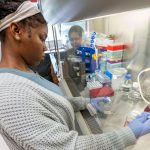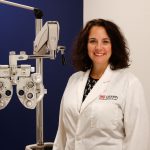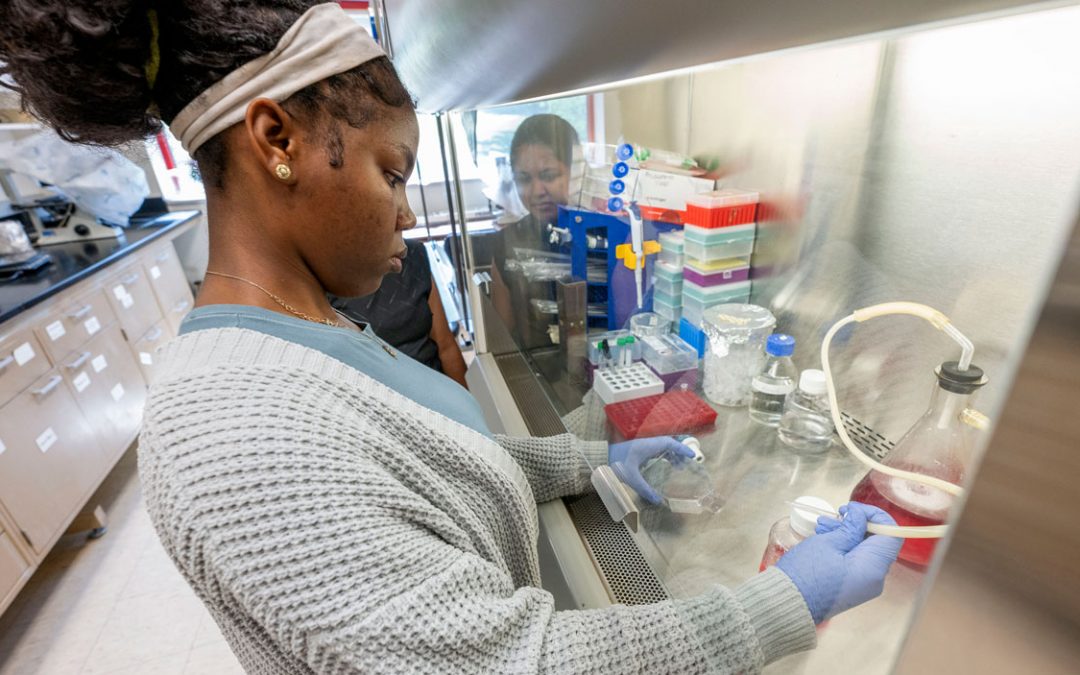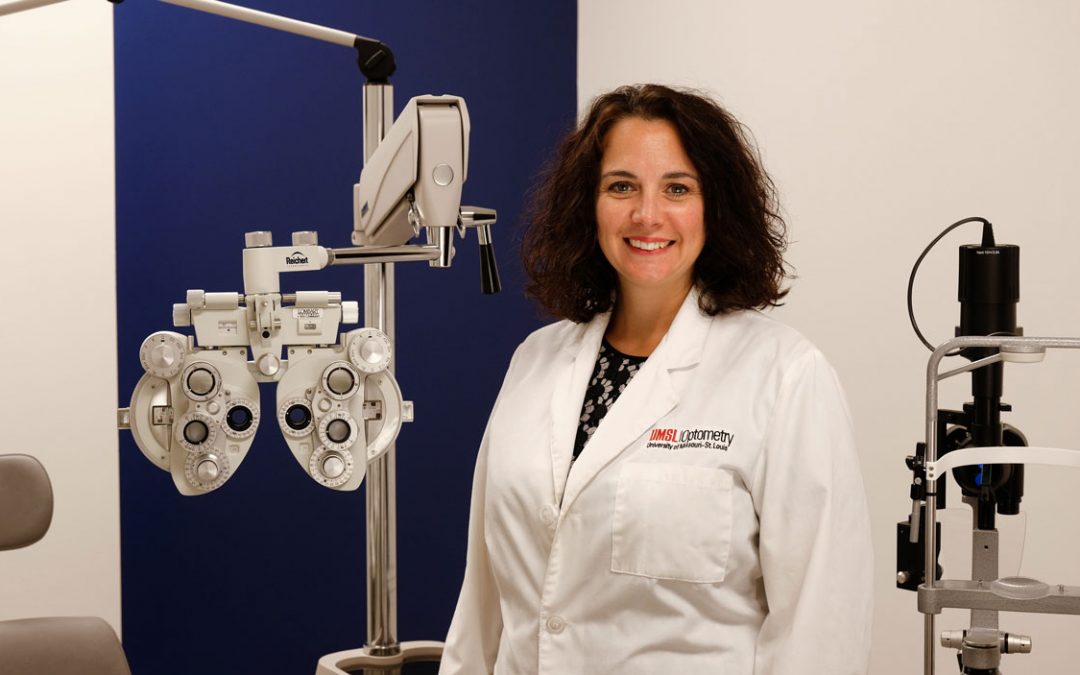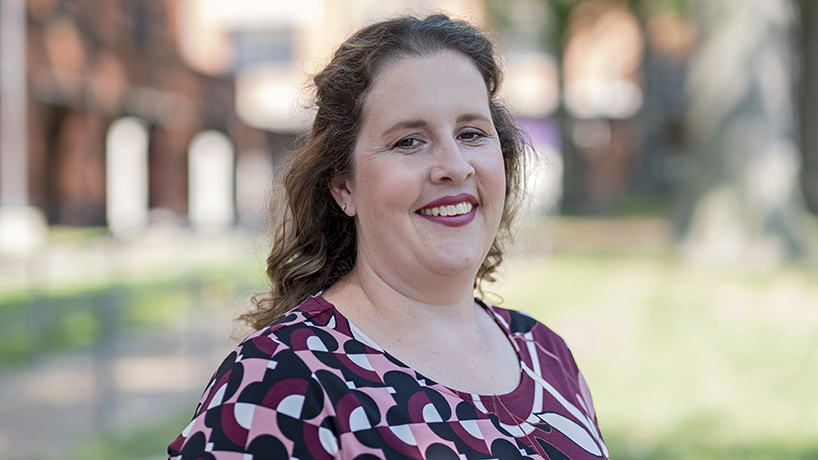
August DNP graduate Julie Nickles researched how the switch to single-patient NICU care impacted quality of nursing. (Photo by August Jennewein)
When Julie Nickles, a nurse leader at SSM Health St. Mary’s Hospital, started research on nursing care in the new neonatal intensive care unit single-patient-room model, she found fewer than 10 studies.
Fortuitous timing because the University of Missouri–St. Louis College of Nursing DNP student needed a clinical scholarship project. Her employer’s switch from the traditional cohort model, in which infants are treated collectively in a large room, worried many nurses.
“I had the desire to figure out what their concerns were,” Nickles says. “What can we do to minimize those and, after the transition, were their fears reality?”
She started with those trepidations and developed pre- and post-implementation questionnaires for her coworkers. Her results demonstrated the benefits of single-room care for nurses as well as patients. Increased patient safety, thanks partially to new equipment, was the largest gain.
She assuaged most concerns. Communication, interpersonal relationships and quality and speed of help in critical situations remained unchanged between the two care models. However, certain surprises have Nickles pondering.
The nurses surveyed reported decreases in their relationships with parents, which she attributes to families’ increased autonomy. Respondents had fewer opportunities to learn from watching their coworkers and were less determined to give their best. Nickles hopes the latter originates from situational busyness and plans to resurvey this fall.
Thanks to her project, the St. Mary’s NICU revamped its admission process to give nurses forewarning of incoming patients. They also decided to address problem areas, like human error prevention, with small, temporary groups that then dissolve. Though her DNP, which she earned in August, may lead to increased leadership opportunities, Nickles is happy with her current job and makes a point to split time between administration and patient care.
“I think it says something to your team that you are willing to go to the trenches with them,” she says. “I don’t know if, at this point in my career, I could give up patient contact. I still go to a lot of deliveries. I love it.”
This story was originally published in the fall 2018 issue of UMSL Magazine. If you have a story idea for UMSL Magazine, email magazine@umsl.edu.


